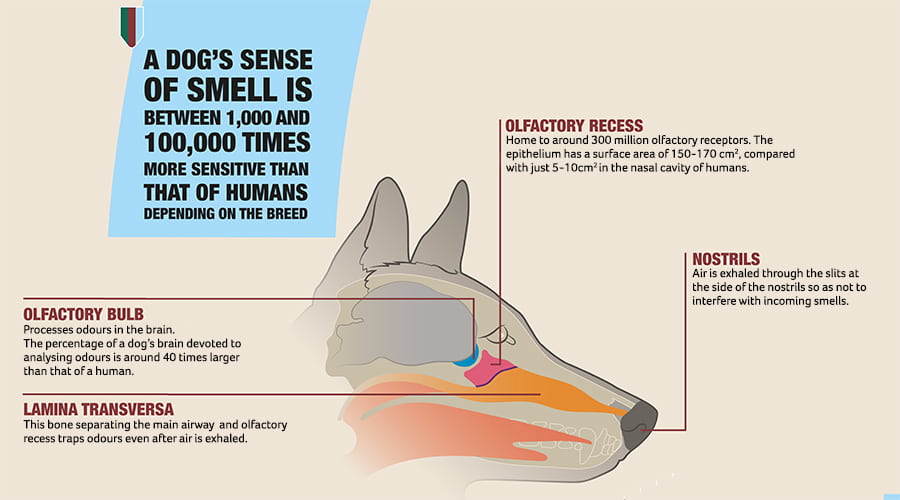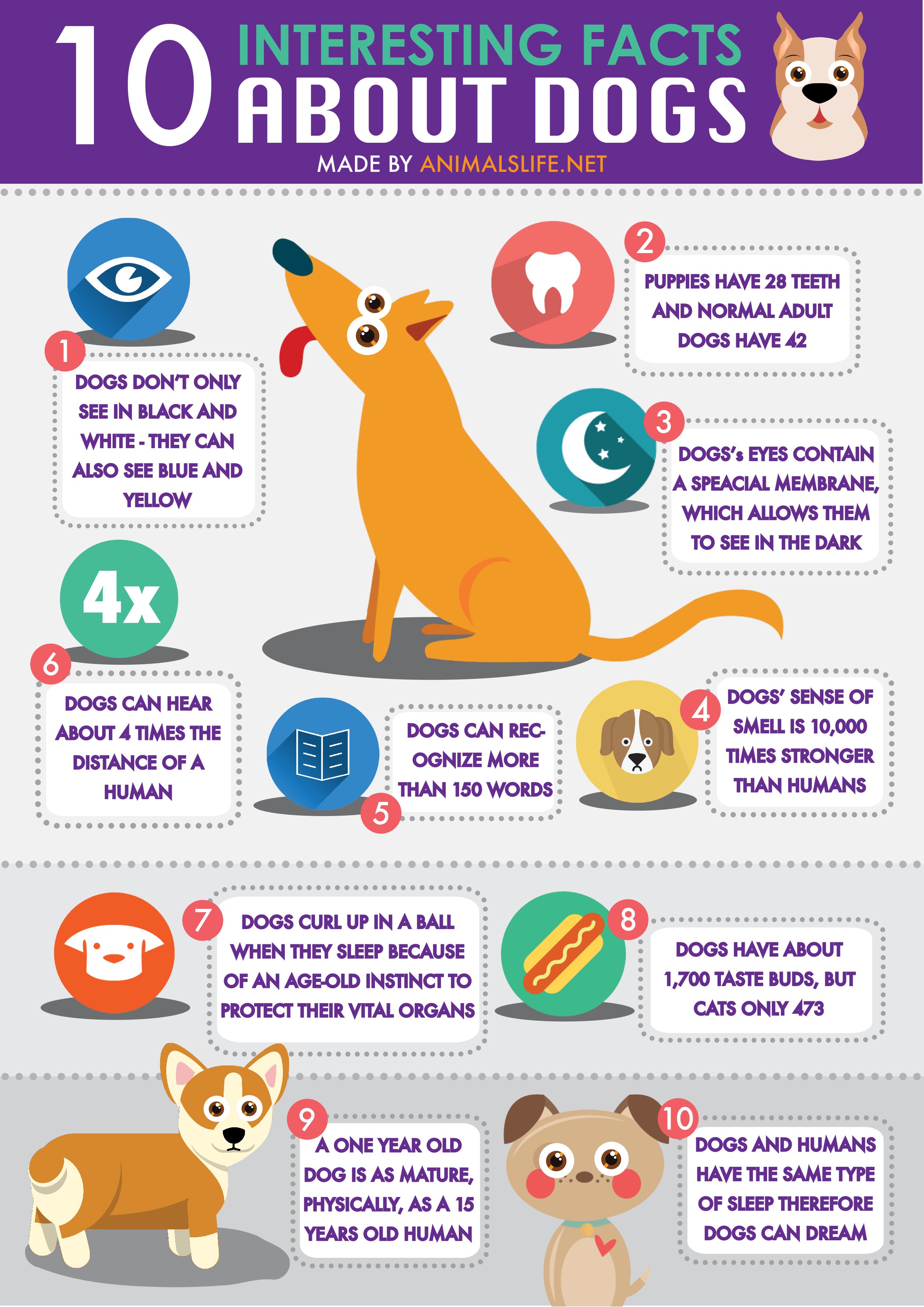A dog’s sense of smell is truly remarkable, as it far surpasses that of humans. With its incredible olfactory abilities, a dog can detect scents that are 100,000 times weaker than what humans can pick up.
In fact, dogs have up to 300 million olfactory receptors in their noses, compared to the mere 6 million that humans possess. This heightened sense of smell enables dogs to track scents, detect diseases, find missing persons, and even identify certain types of cancer.
It’s no wonder that dogs are often employed in search and rescue missions, as their sense of smell truly makes them heroes in their own right.

Credit: www.pdsa.org.uk
Amazing Facts About A Dog’s Sense Of Smell
Dogs possess an incredible sense of smell, far more specialized and sensitive than humans. Their olfactory abilities allow them to gather important information about the environment, recognize individuals, make decisions, and learn. This unique sense is crucial for their perception of the world.
Dogs possess incredible olfactory abilities, making their sense of smell one of their most powerful senses. They have up to 300 million olfactory receptors in their noses, compared to only about 6 million in humans. This enables them to detect even the faintest of smells and distinguish various odors with remarkable precision.
For dogs, smell is not just about detecting scents, but it’s their way of perceiving and understanding the world around them. They can use their sense of smell to recognize individuals, including their owners, identify specific objects, and even detect diseases and medical conditions in humans. They can pick up on subtle changes in scent, allowing them to foresee events like seizures or detect the presence of cancer.
The benefits of a dog’s sense of smell extend beyond simply navigating their surroundings. It plays a crucial role in their daily lives, from aiding in search and rescue operations, tracking down missing persons, and detecting illegal substances to assisting in hunting and providing support in medical diagnoses. Their sensitive noses are an invaluable asset that can save lives and provide valuable information.
Dogs have a unique smell that sets them apart from other animals. The distinct odor is a result of their sweat glands, which are different from humans. The combination of their natural body odor, influenced by genetics, diet, and overall health, gives each dog their own unique scent. Furthermore, what dogs eat can significantly impact their body odor, with certain foods producing stronger or more distinct odors in their sweat and skin oils.
When it comes to comparing dogs’ sense of smell to other animals, they are undoubtedly the champions. Their olfactory abilities surpass not only humans but also many other animals. Dogs have a higher number of olfactory receptors and a larger portion of their brain dedicated to processing smells than most species. This makes them highly proficient in detecting and discerning scents, far surpassing the capabilities of humans and most other animals.
Incredible Olfactory Abilities
Dogs are known for their amazing sense of smell, which is far superior to that of humans. Their olfactory abilities are truly incredible, allowing them to perceive the world in a way that we can only imagine. Let’s delve into some fascinating facts about dogs’ sense of smell!
Dogs’ Sense Of Smell Vs Humans
When it comes to comparing dogs’ sense of smell to that of humans, there is no competition. Dogs have up to 300 million olfactory receptors in their noses, while humans only have around 5 million. This means that dogs have a sense of smell that is 40 times stronger than ours! Their noses are truly a remarkable tool that helps them navigate and understand the world around them.
Another interesting fact is that the part of a dog’s brain that is dedicated to analyzing smells is 40 times larger than ours. This allows them to process and interpret scents with incredible speed and accuracy. While we might struggle to identify a specific odor, dogs can easily differentiate between a wide range of smells and pick up on even the faintest of scents.
Dogs With The Best Sense Of Smell
While all dogs have an impressive sense of smell, there are certain breeds that are renowned for their olfactory abilities. Let’s take a look at some of the dogs with the best sense of smell:
| Breed | Reason for Exceptional Sense of Smell |
|---|---|
| Bloodhound | They have the most olfactory receptors among all dog breeds, making them a top choice for tracking scents. |
| Beagle | Beagles have a keen sense of smell and are often used for detecting drugs and contraband. |
| Basset Hound | Their long ears help trap scents, enhancing their ability to track and locate odors. |
| German Shepherd | German Shepherds are skilled in search and rescue operations, thanks to their superior sense of smell. |
| Labrador Retriever | Labradors are often trained as assistance dogs because of their exceptional olfactory capabilities. |
| Dachshund | Despite their small size, Dachshunds have a powerful sense of smell, making them excellent scent hunters. |
- These are just a few examples of dog breeds with exceptional olfactory abilities, but it’s important to remember that every dog has an incredible sense of smell.
- From sniffing out hidden treats to detecting diseases and locating missing persons, dogs’ sense of smell is truly a remarkable gift.
- So the next time you see a dog intently sniffing a spot on the ground, remember that they are not just wasting time – they are using their incredible sense of smell to gather information and explore their surroundings.
Overall, the olfactory abilities of dogs are nothing short of extraordinary. Their noses are finely tuned instruments that allow them to perceive a world of smells that is invisible to us. It’s truly amazing to think about the incredible sense of smell that dogs possess and how it shapes their perception of the world.
How Dogs Use Smell To Perceive The World
When it comes to perceiving the world around them, dogs rely heavily on their incredible sense of smell. Unlike humans, who primarily rely on their sense of sight, dogs use their nose to gather important information about the environment, recognize individuals, make decisions, and learn. Their sense of smell is far more specialized and sensitive, allowing them to detect scents that are otherwise undetectable to humans.
Finding Food And Water
Dogs have an extraordinary ability to find food and water using their sense of smell. Their noses are equipped with up to 300 million olfactory receptors, compared to our measly 6 million. This allows them to detect even the faintest scent of food or water, sometimes from miles away.
In fact, studies have shown that dogs can detect a single drop of blood in 55 gallons of water or trace amounts of a specific odor buried deep underground. Their sense of smell is so acute that they can even differentiate between different brands of dog food by scent alone.
Detecting Diseases And Medical Conditions
Another remarkable use of a dog’s sense of smell is in detecting diseases and medical conditions. Dogs have been trained to detect various illnesses, including cancer, diabetes, and epilepsy, by sniffing breath, urine, or sweat samples. They can detect these diseases at an early stage, often before any symptoms are noticeable to humans.
Scientists believe that dogs are able to detect these odors due to the volatile organic compounds (VOCs) produced by the diseases, which have a unique scent. By using their extraordinary sense of smell, dogs have the potential to revolutionize medical diagnostics and save countless lives.
Tracking And Search And Rescue
Tracking and search and rescue are areas where a dog’s sense of smell truly shines. Dogs have been used for centuries to track and locate missing persons, criminals, and even disaster survivors. Their keen sense of smell allows them to pick up on a person’s unique scent and follow it, even through challenging terrain or amidst a complex maze of scents.
Search and rescue dogs are trained to detect the scent of a person in distress, whether they are trapped in a collapsed building, lost in the wilderness, or buried under snow after an avalanche. These highly trained dogs can locate victims much faster than humans, saving valuable time in critical situations.
In conclusion, a dog’s sense of smell is truly remarkable. It allows them to find food and water, detect diseases and medical conditions, and assist in tracking and search and rescue operations. As humans, we can only marvel at their incredible olfactory abilities and the important role it plays in their perception of the world.

Credit: www.carecredit.com
Benefits Of A Dog’s Sense Of Smell
A dog’s sense of smell is incredibly powerful, allowing them to gather important information about their environment, recognize individuals, make decisions, and learn. Their olfaction is far more specialized and sensitive than humans’.
Gathering Important Information
A dog’s sense of smell is incredibly powerful and specialized. It allows them to gather important information about their environment that humans can easily miss. Dogs can detect changes in the air composition, identify potential dangers or threats such as fire, detect drugs or explosives, and even locate missing persons or objects. Their sense of smell is so acute that they can distinguish between various scents and track a specific odor for miles.
Recognizing Individuals
Dogs have the incredible ability to recognize individuals by their smell. Each person has a unique scent, and dogs can easily differentiate between various individuals, including their family members, friends, or even strangers. This skill makes them excellent search and rescue dogs, police dogs, or even just reliable companions who can quickly identify and distinguish between different people.
Making Decisions
A dog’s sense of smell plays a crucial role in making decisions. They use their sense of smell to assess situations, evaluate potential threats, and decide on appropriate actions. For example, a dog can detect fear or aggression in others through their scent, which helps them determine whether they need to be cautious or defensive. They can also use their keen sense of smell to find food, locate a source of water, or identify the best route to follow.
Learning
A dog’s sense of smell is an important tool for learning. Dogs can associate specific scents with certain behaviors, rewards, or consequences. This ability makes them highly trainable using scent-based tasks or commands. They can be trained to detect drugs, explosives, or even medical conditions like cancer through their sense of smell. Additionally, dogs can learn to recognize specific scents associated with danger or safety, enhancing their ability to protect their owners.
Unique Smell Of Dogs
When it comes to smell, dogs truly have a superpower. With a sense of smell that is estimated to be 10,000 to 100,000 times more powerful than that of humans, dogs can pick up scents that are undetectable to us. In fact, their sense of smell is so exceptional that some working dogs are even trained to detect diseases like cancer and diabetes. But what exactly makes the smell of dogs so unique? Let’s explore some fascinating facts about the smell of dogs.
Natural Body Odor
Just like humans, dogs have their own natural body odor. This distinctive scent is influenced by a combination of factors, including genetics, diet, and overall health. Each dog has its own unique odor, which can vary from mild to strong. While some may find the smell unpleasant, it is important to remember that dogs rely on their sense of smell to communicate and gather information about their surroundings.
Influence Of Diet On Body Odor
Diet plays a significant role in a dog’s body odor. What a dog eats can have a direct impact on their smell. Certain foods may produce stronger or more distinct odors in a dog’s sweat and skin oils. It is important to choose a balanced and nutritious diet for your furry friend to maintain their overall health and minimize any potential unpleasant odors.
A healthy diet can also contribute to a dog’s overall well-being and reduce the risk of certain health issues that may affect their smell. Providing them with high-quality food rich in essential nutrients can help keep their skin and coat healthy, minimizing any potential odor-related problems.
| Dietary Tips to Minimize Body Odor in Dogs |
|---|
| 1. Choose a high-quality dog food that meets your dog’s specific nutritional needs. |
| 2. Avoid feeding your dog highly processed or low-quality foods that may contain artificial ingredients or fillers. |
| 3. Consider incorporating fresh fruits and vegetables into their diet for added nutrients and potential deodorizing benefits. |
| 4. Provide plenty of fresh water to keep your dog hydrated and optimize their overall health. |
| 5. Consult with your veterinarian for personalized dietary recommendations based on your dog’s specific needs. |
In conclusion, the unique smell of dogs is a fascinating aspect of their incredible sense of smell. Understanding the factors that contribute to their natural body odor and the influence of diet can help us better care for our furry friends and ensure their overall well-being.
Comparison Of Dogs’ Sense Of Smell To Other Animals
When it comes to the sense of smell, dogs truly have superpowers. Their noses are not only impressive in comparison to humans but also surpass many other animals with exceptional smelling abilities. Let’s take a closer look at how dogs’ sense of smell compares to other creatures in the animal kingdom.
Superiority To Humans
Dogs’ sense of smell is far more specialized and sensitive than that of humans. While humans have approximately 5 million olfactory receptors in their noses, dogs have an astonishing 125-300 million receptors. This superior sense of smell allows dogs to perceive the world in a way that is beyond our comprehension.
Furthermore, the area of a dog’s brain dedicated to processing smells is about 40 times larger than that of humans. This means that dogs have a more sophisticated olfactory system, allowing them to detect scents at incredibly low concentrations and discriminate between odors with incredible accuracy.
It is no wonder that dogs are frequently employed in various fields such as search and rescue, detection of drugs and explosives, and even medical diagnoses. Their exceptional olfactory abilities have saved countless lives and continue to amaze researchers and dog lovers alike.
Sharks, Bears, And Other Animals With Exceptional Smelling Abilities
Dogs may have an impressive sense of smell, but they are not the only animals with incredible olfactory abilities. Here are some other notable creatures that rely heavily on their sense of smell:
| Animal | Number of Olfactory Receptors | Interesting Fact |
|---|---|---|
| Sharks | Over 400 million | Sharks can detect a single drop of blood in an Olympic-sized swimming pool. |
| Bears | Around 5 million | Bears have an acute sense of smell that helps them locate food sources from miles away. |
| Elephants | Up to 2 billion | Elephants can sense water sources that are several miles away, thanks to their exceptional olfactory abilities. |
These animals, along with dogs, rely on their sense of smell for survival, communication, and navigation in their environments. While each species has its own unique adaptations, their olfactory capabilities are certainly awe-inspiring.
In conclusion, dogs’ sense of smell is truly remarkable, surpassing humans and rivaling some of nature’s best sniffers. Their superior olfactory receptors and brain processing power give them an edge in perceiving the world through scents. So the next time you see your furry companion sniffing the ground intently, appreciate their incredible sense of smell and how it connects them to the world around them.

Credit: twitter.com
Frequently Asked Questions On Amazing Facts About A Dog’s Sense Of Smell
What Are Cool Facts About Dogs Sense Of Smell?
Dogs have an incredible sense of smell, far more specialized and sensitive than humans’. Their olfaction is crucial for perceiving the world, recognizing individuals, making decisions, and learning. Dogs can also smell their owners from far distances due to their strong sense of smell.
What Are The Benefits Of A Dog’s Sense Of Smell?
A dog’s sense of smell is crucial for gathering information, recognizing individuals, making decisions, and learning. It is specialized and more sensitive than humans’ sense of smell.
How Far Away Can A Dog Smell Its Owner?
A dog can smell its owner from a distance of up to 40 meters (130 feet).
Why Do Dogs Have A Unique Smell?
Dogs have a unique smell due to their natural body odor influenced by genetics, diet, and overall health. Their sense of smell is far more specialized and sensitive than humans’.
Conclusion
A dog’s sense of smell is truly remarkable. Their olfactory skills allow them to gather important information about their environment, recognize individuals, make decisions, and learn. Dogs have a much more specialized and sensitive sense of smell compared to humans.
Their ability to detect scents from far distances is also impressive. Additionally, dogs have their own unique natural body odor influenced by genetics, diet, and overall health. Overall, these amazing facts showcase the incredible capabilities and importance of a dog’s sense of smell.

